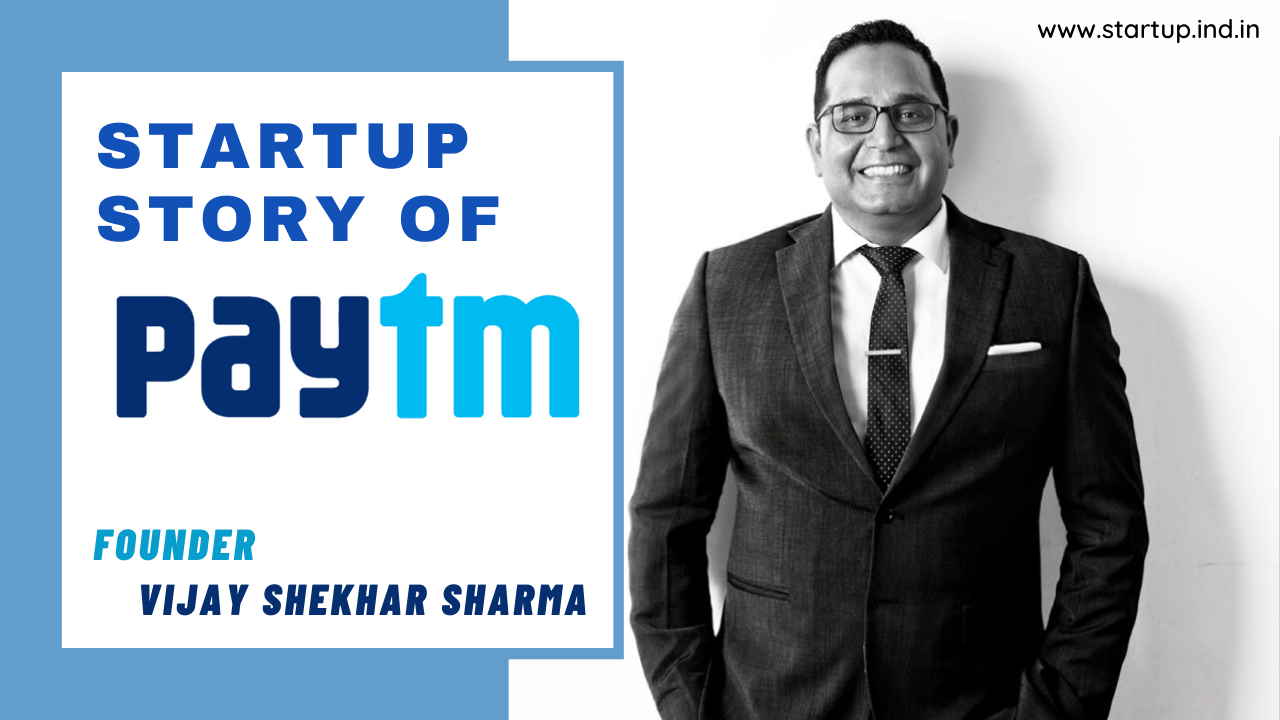Founded: 2010
Founder: Vijay Shekhar Sharma
Industry: Fintech
Net Valuation: $16 billion
Introduction
Paytm, founded by Vijay Shekhar Sharma, has revolutionized India’s fintech landscape. Originally a platform for mobile recharges and bill payments, Paytm has evolved into a comprehensive digital wallet and financial services provider, becoming one of India’s most prominent startups.
The Vision Behind Paytm
Inspired by the potential of mobile internet, Vijay Shekhar Sharma launched Paytm in 2010 under One97 Communications. His vision was to create a platform that would offer convenient and accessible financial services to millions of Indians, particularly those without access to traditional banking.
Early Challenges and Growth
Initial Struggles
Starting with limited resources and a small team, Sharma faced numerous challenges, including securing funding and convincing users to adopt a digital payment platform. Despite these obstacles, Paytm gained traction by focusing on user-friendly services and aggressive marketing.
Key Milestones
- 2010: Launch of Paytm as a mobile recharge and bill payment platform.
- 2014: Introduction of the Paytm Wallet, which quickly became one of the most popular digital wallets in India.
- 2016: Surge in users following the Indian government’s demonetization move, which pushed cashless transactions.
- 2017: Launch of Paytm Payments Bank, offering savings accounts and other banking services.
Expansion and Diversification
Beyond Mobile Recharges
Paytm expanded its services to include a wide range of financial products such as insurance, mutual funds, gold investments, and loans. Additionally, it ventured into e-commerce, travel bookings, and ticketing, establishing itself as a versatile platform catering to various consumer needs.
Partnerships and Collaborations
Collaborations with banks, financial institutions, and other tech companies enabled Paytm to enhance its offerings. Strategic partnerships helped Paytm integrate additional services and reach a broader audience.
Business Model

Revenue Streams
- Transaction Fees: Paytm charges fees on certain transactions, including payments to merchants and utility bill payments.
- Advertising: Revenue from advertising on its platform.
- Financial Services: Earnings from services such as loans, insurance, and investments.
- E-commerce: Revenue from sales and commissions on its e-commerce platform.
Unique Selling Propositions
Paytm’s success can be attributed to its user-friendly interface, secure payment system, and the ability to cater to both urban and rural users. The focus on innovation and customer satisfaction has played a crucial role in its growth.
Challenges and Controversies
Regulatory Hurdles
Paytm has faced regulatory challenges, particularly concerning its financial services. Navigating the complex landscape of financial regulations in India required strategic adjustments and compliance.
Competition
The rise of competitors like Google Pay, PhonePe, and traditional banks developing their digital platforms posed significant challenges. Paytm’s strategy involved continuous innovation and expanding its ecosystem to stay ahead.
Recent Developments
- IPO: In 2021, Paytm went public with one of India’s largest initial public offerings (IPOs).
- Global Expansion: Paytm has begun exploring international markets, starting with Canada and Japan.
- New Ventures: Introduction of new services like Paytm Money and Paytm Postpaid, aimed at broadening its financial services portfolio.
Conclusion
Paytm’s journey from a mobile recharge platform to a fintech giant is a testament to innovation, perseverance, and the ability to adapt to changing market dynamics. Vijay Shekhar Sharma’s vision and leadership have been instrumental in shaping Paytm into a company that not only dominates the Indian market but also inspires startups globally.
FAQs
What is Paytm?
Paytm is a digital wallet and financial services platform offering a range of services including mobile recharges, bill payments, banking, insurance, and investments.
Who founded Paytm?
Vijay Shekhar Sharma founded Paytm in 2010.
How does Paytm make money?
Paytm earns through transaction fees, advertising revenue, financial services, and e-commerce sales and commissions.
Is Paytm a profitable company?
Paytm has faced challenges in achieving profitability but continues to focus on expanding its services and user base to reach that goal.
What does Paytm stand for?
Paytm stands for “Pay Through Mobile,” reflecting its origin as a mobile payment platform.

